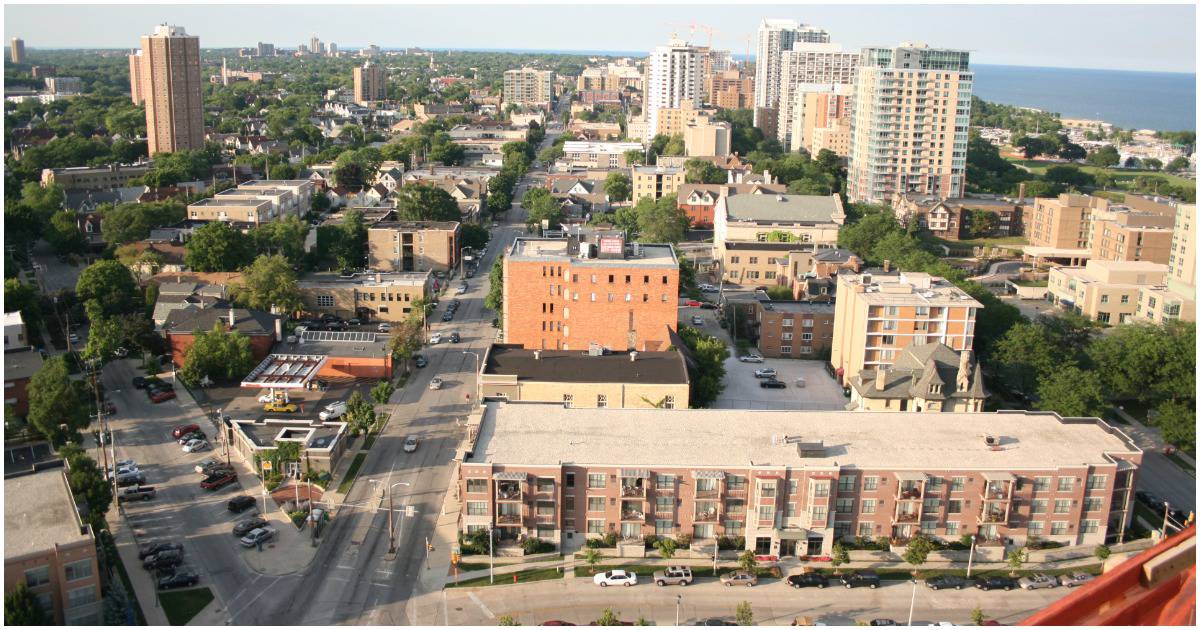Property taxes are the lifeblood of local governments and municipalities across the United States, accounting for over 70% of all local tax revenue. Property taxes – such as taxes levied on homeowners and landowners – go to fund schools, parks, roads, and other public works and services.
While states typically impose a minimum property tax, property taxes are mostly determined at the local level – and are often a percentage of a property or home’s overall value. Depending on where you choose to buy a home, property taxes can range from negligible amounts to nearly matching a mortgage payment.
Across Wisconsin, the effective annual property tax rate stands at 1.53%, the eighth highest among states. For context, homeowners in the U.S. pay an average of 1.03% of their housing value in property taxes a year.
The effective property tax rate is calculated by taking the total amount of taxes paid on owner-occupied homes in a given area as a share of the total value of those homes. While an effective property tax rate is useful for comparing taxes at the state level, it is important to note that property tax rates can still vary considerably within a given state.
Because property taxes are typically levied as a share of a given home’s value, Americans living in places with higher home values often pay more in property taxes in dollar terms, even if the effective property tax rate is relatively low. In Wisconsin, the typical home is worth $197,200, lower than the national median home value of $240,500.
All data in this story is from the Tax Foundation, a tax policy research organization, and the U.S. Census Bureau’s 2019 American Community Survey.
| Rank | State | Effective property tax rate (% of home value) | Median home value ($) | Median household income ($) |
|---|---|---|---|---|
| 1 | New Jersey | 2.13 | 348,800 | 85,751 |
| 2 | Illinois | 1.97 | 209,100 | 69,187 |
| 3 | New Hampshire | 1.89 | 281,400 | 77,933 |
| 4 | Vermont | 1.76 | 233,200 | 63,001 |
| 5 | Connecticut | 1.73 | 280,700 | 78,833 |
| 6 | Texas | 1.60 | 200,400 | 64,034 |
| 7 | Nebraska | 1.54 | 172,700 | 63,229 |
| 8 | Wisconsin | 1.53 | 197,200 | 64,168 |
| 9 | Ohio | 1.52 | 157,200 | 58,642 |
| 10 | Iowa | 1.43 | 158,900 | 61,691 |
| 11 | Pennsylvania | 1.43 | 192,600 | 63,463 |
| 12 | Rhode Island | 1.37 | 283,000 | 71,169 |
| 13 | Michigan | 1.31 | 169,600 | 59,584 |
| 14 | New York | 1.30 | 338,700 | 72,108 |
| 15 | Kansas | 1.28 | 163,200 | 62,087 |
| 16 | Maine | 1.20 | 200,500 | 58,924 |
| 17 | South Dakota | 1.14 | 185,000 | 59,533 |
| 18 | Massachusetts | 1.08 | 418,600 | 85,843 |
| 19 | Minnesota | 1.05 | 246,700 | 74,593 |
| 20 | Maryland | 1.01 | 332,500 | 86,738 |
| 21 | Alaska | 0.98 | 281,200 | 75,463 |
| 22 | Missouri | 0.96 | 168,000 | 57,409 |
| 23 | Oregon | 0.91 | 354,600 | 67,058 |
| 24 | North Dakota | 0.88 | 205,400 | 64,577 |
| 25 | Georgia | 0.87 | 202,500 | 61,980 |
| 26 | Florida | 0.86 | 245,100 | 59,227 |
| 27 | Washington | 0.84 | 387,600 | 78,687 |
| 28 | Virginia | 0.84 | 288,800 | 76,456 |
| 29 | Oklahoma | 0.83 | 147,000 | 54,449 |
| 30 | Indiana | 0.81 | 156,000 | 57,603 |
| 31 | Kentucky | 0.78 | 151,700 | 52,295 |
| 32 | North Carolina | 0.78 | 193,200 | 57,341 |
| 33 | Montana | 0.74 | 253,600 | 57,153 |
| 34 | California | 0.70 | 568,500 | 80,440 |
| 35 | Idaho | 0.65 | 255,200 | 60,999 |
| 36 | Tennessee | 0.63 | 191,900 | 56,071 |
| 37 | Mississippi | 0.63 | 128,200 | 45,792 |
| 38 | Arkansas | 0.61 | 136,200 | 48,952 |
| 39 | Arizona | 0.60 | 255,900 | 62,055 |
| 40 | New Mexico | 0.59 | 180,900 | 51,945 |
| 41 | Delaware | 0.59 | 261,700 | 70,176 |
| 42 | Nevada | 0.56 | 317,800 | 63,276 |
| 43 | Utah | 0.56 | 330,300 | 75,780 |
| 44 | South Carolina | 0.53 | 179,800 | 56,227 |
| 45 | West Virginia | 0.53 | 124,600 | 48,850 |
| 46 | Colorado | 0.52 | 394,600 | 77,127 |
| 47 | Wyoming | 0.51 | 235,200 | 65,003 |
| 48 | Louisiana | 0.51 | 172,100 | 51,073 |
| 49 | Alabama | 0.37 | 154,000 | 51,734 |
| 50 | Hawaii | 0.31 | 669,200 | 83,102 |







![WATCH: Elon Musk Town Hall Rally in Green Bay [FULL Video]](https://www.wisconsinrightnow.com/wp-content/uploads/2022/04/Elon_Musk_3018710552-265x198.jpg)



![The Great American Company [Up Against the Wall]](https://www.wisconsinrightnow.com/wp-content/uploads/2025/03/MixCollage-29-Mar-2025-09-08-PM-4504-265x198.jpg)
![The Wisconsin DOJ’s ‘Unlawful’ Lawman [WRN Voices] josh kaul](https://www.wisconsinrightnow.com/wp-content/uploads/2025/03/MixCollage-29-Mar-2025-08-48-PM-2468-265x198.jpg)